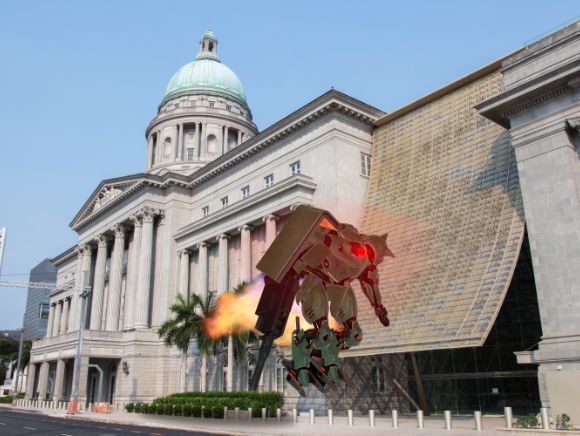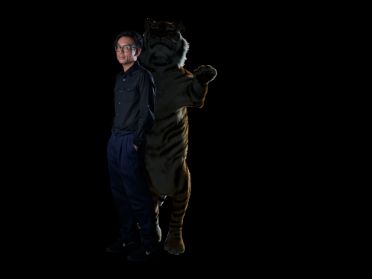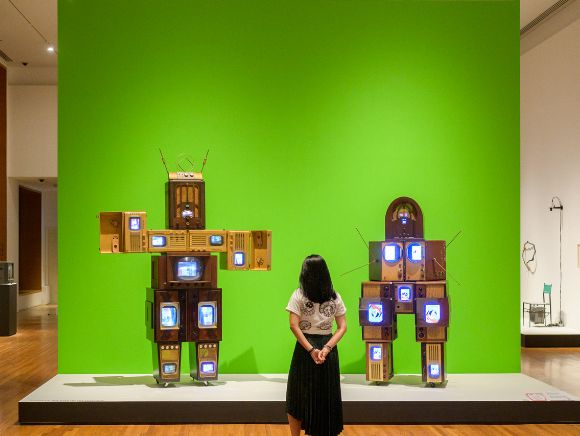
Language (2022)
 14 Jan–31 Mar 2022
14 Jan–31 Mar 2022
All day
 National Gallery Singapore, along St Andrew's Road
National Gallery Singapore, along St Andrew's Road
Language (2022), Ho Tzu Nyen latest work in AR, stages a number of theoretical texts produced by Japanese intellectuals during the 1930s and 1940s, against a backdrop of intensifying Japanese military aggression across Asia. The thread that weaves through these texts and individuals is the so-called Kyoto School, a group of scholars centred on the figure of Kitaro Nishida (1870–1945), who had sought to overcome Western philosophy by drawing upon Eastern ideas. Traces of Nishida’s ideas can be found in the subsequent work and thoughts of his colleagues and students as they sought to find, or perhaps to create, the purpose and the moral significance of the war[s].
Language recreates the troubled relationships between the master (Nishida) and two of his students. The first is Hajime Tanabe (1885–1962), considered to be Nishida’s first disciple and successor. During the war years, he delivered a number of lectures to Japanese students to prepare them for conscription and sacrifice for the state. The second is Miki Kiyoshi (1897–1945) — said to be Nishida’s favourite student, who tragically died in prison. Breaking down public history through an accumulation, and subsequent reconfiguration of images and texts, Language highlights the complex and multi-layered nature of history. Language is a reiteration of an earlier project, Voice of Void, created in collaboration with Yamaguchi Center for Arts and Media in 2021.

Ho Tzu Nyen makes films, installations and performances that often begin as engagements with historical and theoretical texts. His recent works are populated by metamorphic figures such as the weretiger (One or Several Tigers, 2017) and the triple agent (The Nameless, 2015), under the rubric of The Critical Dictionary of Southeast Asia, an ongoing meta project.






